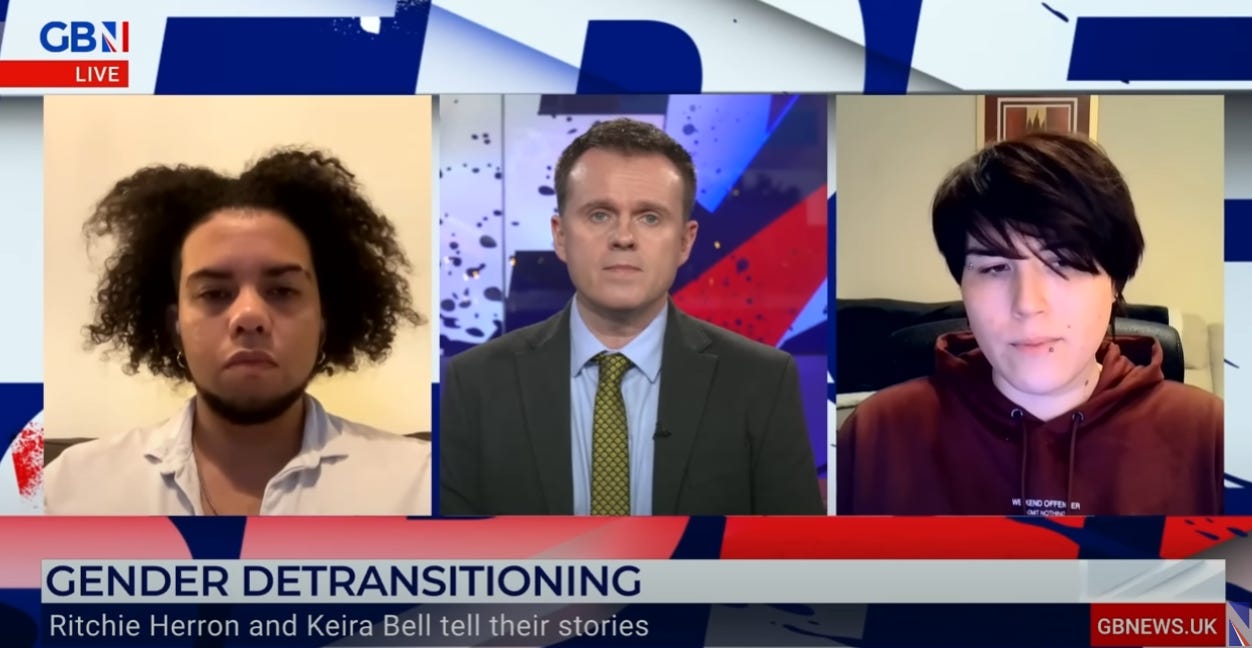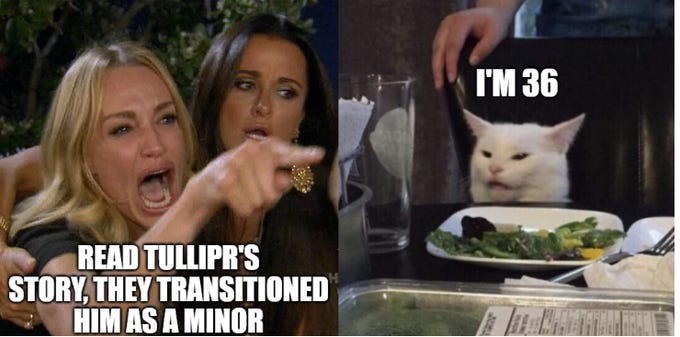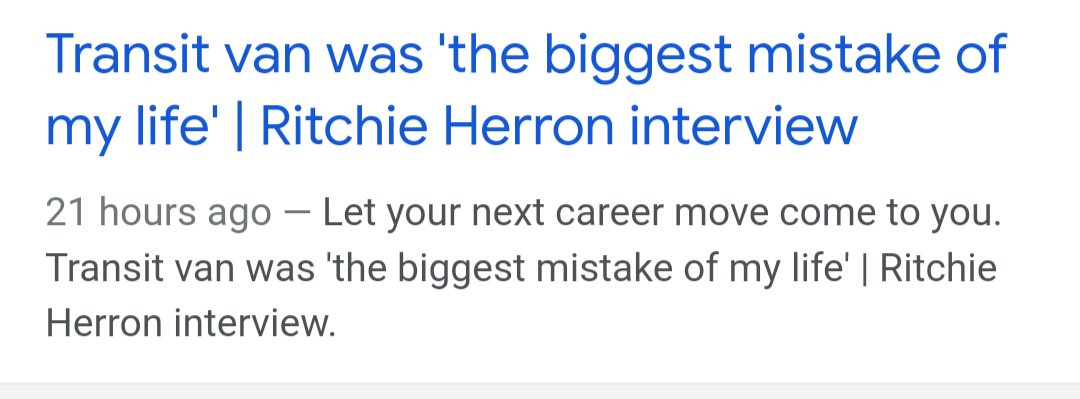Over the last year, I’ve appeared in dozens of interviews and have had a broad range of experience appearing in media, sometimes by my own will, other times not.
I wanted to share those hard earned lessons in the hopes it reaches anyone considering sharing their story.
Think long term
If you do decide to put your face and name out there, it has to be worth it, and it needs to be for something. Consider a long term goal, whether its legal action or giving testimony’s, be clear what you’re looking to do.
It wasn’t until around April 2022 that I waived my right to anonymity. I started to truly acknowledge that perhaps, just perhaps there was a chance for justice, and it was worth trying to pursue; though I would need support.
And if the legal route failed, which thankfully it hasn’t, the next step would be looking at creating a support network for those affected, providing a voice for the most hurt and a place to heal.
I’ve been doing this anyway in the background for the last year, but I’m hoping to be able to expand that further in the future. Having built up the connections over the last year, that might be more than a pipedream, and a possibility.
Consider Anonymity
Your story may well just be powerful enough on it’s own. There is an undue pressure to wave anonymity when speaking publicly, and whilst it’s may add weight to the story; it comes with disadvantages too.
The only problem this brings is, you will have to alter aspects of your story to fully hide your identity, and that in turn causes issues. As I’ll repeat in this article, sticking with the truth is imperative, and when you stray off, you’ll lose credibility in an instant.
There are plenty of fake stories out there, and anonymous ones are easily dismissed, but don’t let that discourage you. The very process of writing it down can be healing enough, even if no one sees it and it’s just a word document sitting on your desktop.
Understand the Implications
Going against the grain is never popular, and sticking to your position can feel difficult with the mounting pressure that can come seemingly from all angles. It can take the form of an old acquaintance you were once close with, now speaking our against you, or like me, the entire community rallying against you in united distaste for the apparent betrayal.
They say the Internet is forever, and if you’re name is in the news, you can be guaranteed it will be searchable, and that in turn starts a chain reaction of sorts, linking to sources of discussions and others linking to that discussion. You will quickly lose control, and privacy.
I’m part of a discourse that is very niche, it’s highly unlikely a person on the street would recognise me, however I certainly have been spotted by transitioners who’ve recognised my face, probably from the wanted posters…
Reddit has plenty of threads about me. Just like there are countless discussions in various different internet forums, regarding things I’ve said or done. Both in a positive and negative light. Then theres the likes of 4chan and other fringe areas that also occasionally pass a comment, sometimes even being surprisingly supportive.
No matter how well you tell your story though, how articulate or clear; it will be misreported. You will have people altering the details in discourse, often to prove their own narrative. A good example of this is, I often get confused for a ‘former trans kid’, but I transitioned as an adult. Even though it’s not me doing it, I still get called to task for that.
That also means, people who dislike you will do what they can to discredit and humiliate you, through memes or fake articles about what you’ve done, who you’ve colluded with. Be prepared, it can get vicious, but also sometimes funny.
Your life will be on full display, like a goldfish in a bowl. The meaning behind your words will be twisted, and you may even find yourself defending something you didn’t say. Don’t fall for that one or anyone who starts a sentence with “So you’re saying.”
No matter the position held, there will be someone with something to say. That’s just the Internet in general, and people.
Get past the Obsession phase
If you’re like me, and extremely obsessive, latching onto ideas with intensity, you may find it nearly impossible to put on the breaks. I went public as I detransitioned, and that was most certainly the wrong time to do it. It’s not unusual for us to want to figure it all out, as we process what’s just happened.
Though I had already decided to do so, just a month after making my first ever public post, I begun the detransition process, all the while riding the media frenzy that followed.
At the time, I couldn’t be happier to appear on podcast after podcast, to write article after article, and though it certainly helped me process and understand things, i wonder if doing that publicly was the right decision?
Perhaps, perhaps not. Maybe it helped others, I hope so, because the process certainly left a mark on my health, it wasn’t easy.
It was more or less a repeat of how I entered the trans community to begin with. Carol on Twitter, mentioned when I first came on the scene that I should wait at least a year. I think that was good advice, and perhaps should have taken it.
Giving yourself time is essential after what you’ve been through, there is no rush, honestly. If anything it’ll give you time to process what happened.
Include those close to you
For the reasons outlined above, it’s imperative that you do not do this alone.
Whether they support the action or not, it’s important that they support you directly. Family, partners, friends, whoever means the world to you, even if its someone behind a computer screen; include them. Bounce off your plans and intentions.
Understand that whilst you may be prepared to go public, they may not feel the same way, though that isn’t always the case. That doesn’t mean you’re asking for permission, but it’s important they don’t hear your story in the news or from someone else before your able to tell them yourself.
You may also want to include your employer in on your actions too. No one wants to be in a situation with HR or face that kind of pressure at work. Having them fully aware of whats happening is essential, especially if you do chose to go public.
Stay in your Lane
I transitioned as an adult, and whilst I view puberty blockers as dangerous and see problems in childhood transition, I’d never dare to comment on it. I didn’t have that experience, and speaking from experience is what gives your words reliability.
This is why whenever an activist, refers to their past selves as ‘could have easily been a trans kid’ (and this works for both for and against); it doesn’t hold any weight, because it’s meaningless. No experience occurred. It would be like saying, if I was born 100 years earlier, I’d be fighting in the trenches of World War 1, and whilst that probably is true; its not what happened, because I was born in 1987, not 1887.
This also applies to other areas of discourse, like feminism. I’m not a woman, nor a feminist, but that doesn’t mean I can’t stand by women should they ask. And if it’s one thing i’ve learned, they certainly don’t need me speaking for them. That is true of any discourse where I have no personal experience, and equally so, the same should be true for others.
I can talk about finding the transgender movement in my 20’s, going through transition, surgery, and all the things in-between, but the second I move out of that, I have no frame of reference, and my words become meaningless.
Be mindful of what you say
It’s amazing how the smallest, off the cuff remark can bite you back in the arse, because you said it too soon and without thinking about it.
I can’t even remember if it was an interview, something I tweeted, something I wrote, but one of the topics I really didn’t want to talk about too much to soon, was the grooming I experienced online at ages 12-16.
I got caught off guard during an interview, and that interview was watched by my family, who I hadn’t disclosed what happened. That wasn’t the way they should have found out, nor was it how I planned to tell them.
And on that note; don’t give everyone everything at once. People can only handle so much information or ideas at any one time, and it takes a while for that to be understood and processed.
Always remember, you don’t need to divulge everything either. I think writing about my experiences online is important, because they were all important in understanding the pathway of transition, but I regret disclosing details like that. It took my mind to a place that I didn’t want to go to, and wasn’t ready for.
No sides, just narratives
There is myth, that there are ‘two sides’ to this entire debate. Don’t be fooled, it’s a trap, an absolutist proposal that this complex issue can be divided into simply for or against.
There are however factions. And within those factions are others factions. Some with aligned interests that overlap, but it’s certainly not just ‘two sides’.
For example, consider the following:
An American Republican
A conservative Christian
A Gender Critical person in the UK
A trans person critical of affirmation
A detransitioner
A Radical feminist
Each one of these may believe that there are harms within affirmation, but outside that, they have a lot of differences, some views overlapping, some at conflict.
This means fundamentally, if you allow yourself too; you will be walking through a minefield of eggshells. Instead, again, stick to your story, what happened, how it felt, how you feel now.
Don’t give in to pressure
I’m so glad I didn’t share my surgery photos early on. It would have ruined me to do that at any point, even up until now.
I may disclose them in the future, and I think the time is coming soon, but it wasn’t early on. I nearly caved to obscene demands of intimate photos, that evidenced what i was saying. It’s only natural to want to prove your intentions, and validity, but many people who probe like this aren’t doing it with you in mind.
It’s tempting to give caveats on your own experience, to spare the feelings of others or sedate the screams of strangers, but don’t. They’re not screaming for you, it’s all for them.
Be prepared to be challenged, and learn, but don’t cave if you feel strongly about a key point.
You owe nothing to Journalists
The first ever mainstream journalist I spoke to was a reporter called Sanchez Manning. Never in my life would I have thought I would be doing an article with the Daily Mail, it was on my list of publications I should avoid. However, I realised early on no matter which publication I landed with, I’d face backlash, and there was no chance in hell it would end up in anywhere like the Guardian or BBC.
What mattered to me was the story was being reported accurately, and fairly. Sanchez ensured that happened too, which made working with other sources less daunting.
Now, you could say I got very lucky with that, though there were multiple recommendations leading back to Sanchez, before i took the plunge. I didn’t enter that one half heartedly, it took a lot of planning. However, not all journos are on side. Some can be very pushy, expect the world from you for nothing. And remember, you owe them nothing, you don’t work for them.
And on that note, do not be afraid to say no.
I just couldn’t refuse anyone in the early days, and it absolutely shattered me. The volume of podcasts and interviews from April 2022 to the July was insane, and completely worn me out.
It took several dozen interactions, before learning the value of saying no. Its such a simple word, and it doesn’t have to be done harshly. It can be as something as “I’m not taking interviews at present.” Remember, you owe them nothing, they don’t need to know when you’re back or if you will. They have deadlines, stories to write, it’s their job, not yours.
Prepare for Difficult Questions
I wish the NHS questioned me like the Times did. But seriously, this was a hard interview. Just like every other televised interview I’ve done, I had no idea what they were going to ask, only a rough outline.
This is why its fundamentally important to speak truthfully, from the heart and using your own experience. It can never betray you.
Also understand that the questions coming your way are planned out by the media company interviewing you. Some are reading of teleprompters, off scripts, which is to be expected given the nature of broadcasting, but it means its you versus a team of people potentially, trying to find cracks in your story or character.
It makes for much better viewing, to give a soundbite or a phrase that grabs readers. In the interview with Dan Wootan, he said “So, you’ve essentially ruined your life.” He wasn’t wrong, but my face did all the work with that one.
You’re gonna need a thick a skin
I might just be a great big’ol softy, and the things that bother me the most, are when people I respect say something hurtful, or perhaps they hit on an uncomfortable truth, though mostly I’m bothered how some people are unfairly dragged through the coals. I do after all have a shared experience, and whilst i try my best, sometimes i bite back. And it’s those moments of frustration that will be called up on, as they attempt to destroy your character.
When it comes to dealing with death threats, or more commonly invitations for me to kill myself, abuse and accusations, I don’t wince. I’ll tell you why; I’ve been using the Internet for over twenty five years. You could say I’m desensitised, and not everyone will have that advantage, if you can even call it that…though, if you don’t have a thick skin, this is not going to be easy.
It’s made worse when people you used to know pass comment, and that stings. Especially when they engage in malicious tactics or straight up libel.
Get Legal Advice
I’m fortunate enough to have no shortage of legal advisors on hand. If you are so lucky, please don’t be shy to ask them questions, especially if you are taking legal action.
You may also want to know your rights around defamation and libel, some instances may call for it, most won’t.
I used to think the law was out of bounds for someone like me, because I couldn’t afford a lawyer, though many will take on cases pro-bono, meaning you only pay if you win.
It also doesn’t hurt that I’ve built up a good range of contacts over the last year, some of them lawyers themselves. Though not everyone’s going to be in this position, which is where networking with other detransitioners can be helpful.
So, should you? Shouldn’t you?
Yes, I think you should tell your story, and there are many ways to do it. It doesn’t have to be front and centre.
Going public with your face and name should not be taken lightly. Make no mistake; it’s not for the feint of heart and will take over your life, end relationships, form new ones. It will change a lot for you, and not always for the better.
You may want to decide early on how long you want to be in the discourse, as one thing is for certain; you don’t want to be doing this long term.
Some places absolutely do not want to hear your story too
But most importantly, remember, you don’t owe anyone a damn thing.









As you’ve said here, you don’t owe anyone anything. So I just want to say thank you for speaking out.
This is such a considered post, Ritchie. I've commented here and there on various things you've put out, under a pseudonym, and I'm just someone who wants better MH support for people. Little skin in the game. Opening the doors to let a story out also lets the world in, it seems like, and what you put between you and the open door is so important to keep you upright. I (in an internet stranger way obvs) value your big softy self massively, and I hope you realise that you're wonderful regardless how you choose to proceed with your life and your story. Your sense of humour comes across so well in your material, it's brilliant and it's vital. Wishing you strength, power, space and gentleness.